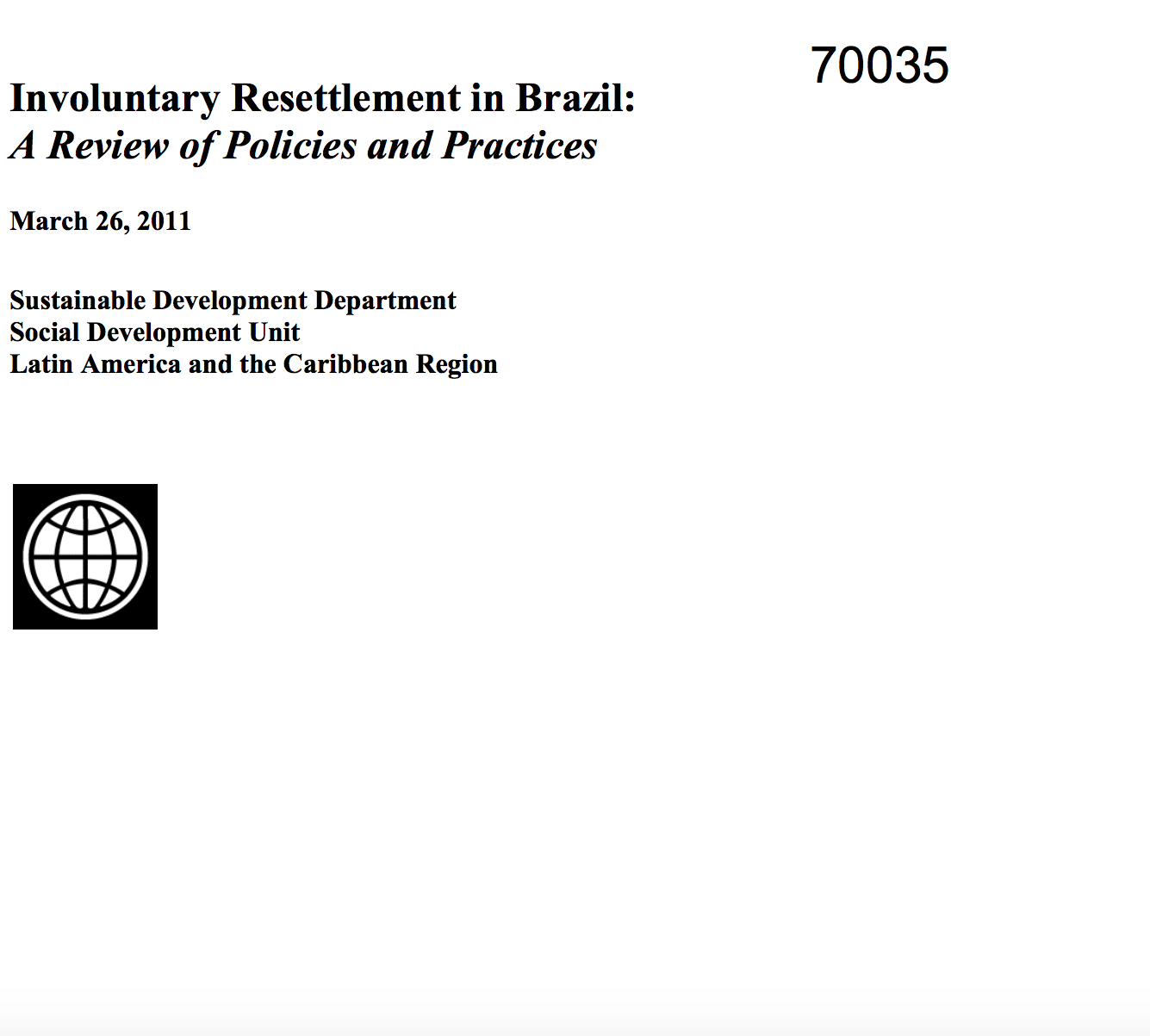Resource information
1. As Brazil embarks on a period of intensive infrastructure development—fueled by the upcoming World Cup, Olympics, and the government‘s ongoing Growth Acceleration Plan—it is an opportune time to review its experiences with land acquisition and displacement of affected persons, and to assess the extent to which its resettlement practices match up to international standards.
2. The objective of this review of resettlement policy and implementation in Brazil is to identify ongoing good practices as well as areas for further improvement. It draws upon an assessment of the Brazilian legal and institutional framework related to land acquisition for projects in the public interest, a rapid evaluation of the resettlement programs in six projects (three projects that received Bank financing and three implemented without Bank support),1 interviews with experts in this field and with people affected by projects, and a literature review of national and international practices. The key findings and recommendations are summarized below.
3. Over the past decade, Brazil has made significant progress in improving resettlement policy, practice and outcomes. The review found good practice examples related to identifying adverse impacts resulting from land acquisition, comprehensive planning for physical relocation, improved consultations with affected people, and good design of land-based economic rehabilitation programs. However, there are additional aspects of resettlement that it needs to tackle to be at par with the best international practice in this area. For example, resettlement plans are sometimes prepared only to comply with licensing procedures and not properly followed during implementation; projects do not take full advantage of consultations as a tool for developing resettlement solutions and reducing project risks; and the compensation provided to affected persons is not always adequate to restore their incomes and standards of living. The encouraging news is that most of the good practices that can inform improvements is evident within Brazilian projects. The focus now should be to make these good practices systemic, so that it is applied consistently across all projects involving involuntary resettlement.
4. How can this be done? To begin with, Brazil could establish minimum standards on involuntary resettlement. As is common in many countries, land acquisition and involuntary resettlement in Brazil is governed mostly by federal and state legislation on land expropriation. There is no specific national policy or guideline to address physical displacement (relocation) or economic displacement (loss of income sources or livelihoods) of those affected by development projects. At the same time, there is ample scope for policies to be made more consistent across sectors, and practices needs to become more uniform, regardless of the financiers involved. The energy sector stands out as an example of good policies and practices related to involuntary resettlement—primarily because of the experience gained in the sector over the pas


